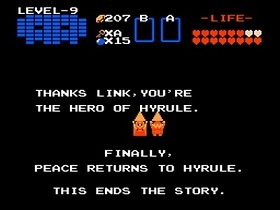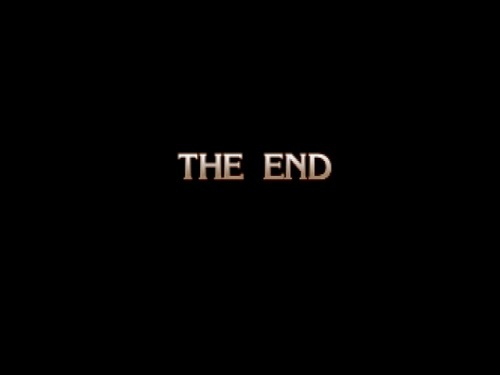This post has not been edited by the GamesBeat staff. Opinions by GamesBeat community writers do not necessarily reflect those of the staff.
 Ask any gamer what their goal is in playing a game, and they would probably reply, “To beat it.”
Ask any gamer what their goal is in playing a game, and they would probably reply, “To beat it.”
It’s a fair answer. After all, during every play session you become one step closer to that ultimate goal of “beating” the game. Every objective completed, item collected, dungeon conquered, and so on, all contribute to the game’s completion.
But that word, “beat,” can be ambiguous. All gamers know that the term “beat” is synonymous with “finish.” To beat a game implies that one has conquered it completely. While that might be clear at first glance, closer examination of that term in reference to video games can be troublesome. How do you actually know when you have beaten a game?
That might seem obvious. You would respond, “Well, when I defeat the final boss and see the end credits, then I know I’ve beaten my game.” Sure, that makes sense, but does that mean you might never play that game again? If you’ve truly beaten it, what sense does it make to go back and start over? Surely the game can offer no more challenge once you’ve beaten it, since you already know what to expect.
Okay, maybe you have beaten the game on “Normal” difficulty, and the game offers an “Expert” difficulty. Once you begin the game on “Expert,” does the fact that you’ve beaten the game already still hold true? Perhaps it would be more appropriate to state, “I’ve beaten so-and-so game on Normal difficulty.” Therefore, you would be acknowledging the fact that the game still has more to offer, and that you’ve only beaten one facet of it.

Maybe, maybe not.
So, after you’ve beaten the game on every difficulty, and consumed valuable hours of your life (hopefully it was a good game), now can you truly say with authority, “I beat this game”? Well, you know, there is still a few optional items you forgot to collect on your quest. The answer is still “no.”
You can’t truly beat a game until you have seen everything it has to offer. That means you must attain 100% completion. Yes, it’s time to start that game over again, and this time you must collect every item, heart piece, Achievement, or whatever, to claim that elusive “100% completion” goal. Done that? Then congratulations! You’ve finally “beaten” your game!
Of course, not every gamer has the will to achieve 100% completion on every single one of their games (I know I don’t). Beating a game can therefore be a subjective term — if you believe that you have beaten the game, then you’ve beaten it. This approach is usually taken with “bad” games, or the “one and done,” because who really wants to torture themselves all over again?
There are also games that can not be beat, either in the authoritative, or subjective, sense. Multiplayer-only games come to mind. If someone walked up to me and said, “I beat Team Fortress 2,” I would instantly know that they are lying. Sure, you might beat a single “round,” but to say that you’ve beaten the entire game is absurd. TF2 does not have a campaign mode to “beat,” and the fact that it is ever-evolving with new weapons and other items, you will never see all that it has to offer as long as Valve continues to release downloadable content.
Downloadable content also throws another wrench into that elusive “beat” term. You might have just finished L.A. Noire with 100% completion, but future DLC will instantly eradicate that achievement.
Now, if you’ll excuse me, I’m going to go beat Duke Nukem Forever (in the subjective sense, that is).
